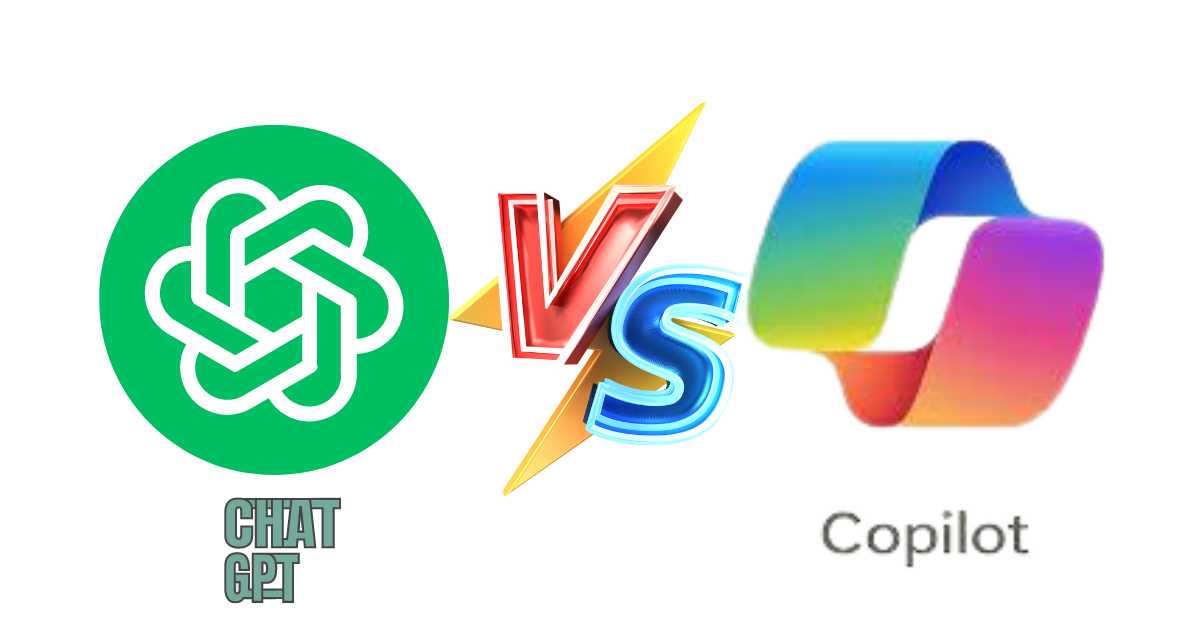Introduction to ChatGPT-4 and Copilot
In the dynamic world of artificial intelligence, two pioneering tools have redefined our interaction with technology: ChatGPT-4 and Copilot. These tools, crafted by leading AI entities, are not just about streamlining operations and boosting productivity but about pushing the boundaries of what AI can achieve. ChatGPT-4, with its ability to generate human-like text responses, and Copilot, with its real-time code suggestions, are at the forefront of AI innovation. This comprehensive analysis will delve into their unique features, applications, and user experiences, inviting you to explore the exciting world of AI tools.
Features and Capabilities: A Comparison
ChatGPT-4, developed by OpenAI, marks a leap forward in natural language processing technologies. It understands and generates responses that can astoundingly mimic human conversational patterns. The tool is designed to manage a wide range of tasks, from basic Q&A to complex problem-solving scenarios.
Copilot, an AI pair programmer, was created by GitHub in collaboration with OpenAI. Unlike traditional coding assistants, It predicts and fills in code snippets in real time using context from the work already done in the project. It is powered by a subset of GPT-3, making it a specialized tool for coding.
Vast datasets and machine learning models underpin both tools, but their core functionalities cater to different user bases—ChatGPT-4 for general users and content creators and Copilot for developers.
Practical Applications in Various Industries
ChatGPT-4 is a versatile tool with applications in various industries. In education, it can function as a virtual tutor, while in customer service, it can act as a support bot. For content creation, it aids in generating a wide range of content. Its ability to understand context and nuance makes it a powerful tool in these roles, enhancing productivity and efficiency. Copilot, on the other hand, is a game-changer in the software development industry. It not only accelerates the coding process but also educates developers on best practices and newer programming paradigms, making it an invaluable asset for programmers. learn how to 5 AI Prompts For Educators Using ChatGPT
Copilot, meanwhile, shines in the software development industry. It helps programmers by suggesting entire lines of code or functions, learning from the vast amount of public source code available on GitHub.This speeds up the coding process and educates developers on best practices and newer programming paradigms at the same time.
User Experience and Accessibility
ChatGPT-4 prides itself on user-friendly interfaces accessible to even those with minimal technical expertise. Whether it’s navigating its capabilities or integrating it with other software, ChatGPT-4 is designed to be as intuitive as possible.
Copilot requires a fundamental understanding of coding principles, but it integrates directly into Visual Studio Code, making it a seamless addition to the developer’s tools. The learning curve is steeper compared to ChatGPT-4, but it is incredibly effective once mastered. To get started, developers need to familiarize themselves with the tool’s interface and understand how it uses context from the project to suggest code snippets. With practice, users can leverage Copilot’s capabilities to speed up their coding process significantly.
Future Prospects and Developments
The trajectory of AI tools like ChatGPT-4 and Copilot is on a steep upward climb. Future enhancements are expected to focus on improving accuracy, reducing biases in AI responses, and expanding their adaptability to more languages and frameworks. For instance, modern generative AI is working on a feature that allows ChatGPT -4 to generate code snippets, making it even more versatile. For users who rely on these tools for cutting-edge solutions, staying abreast of these advancements will be crucial.
Ethical Considerations and Impact
Great responsibility accompanies great power as AI tools become more integral to our daily tasks; ethical considerations must be addressed, including privacy concerns and the potential for job displacement. Both OpenAI and GitHub are actively engaging with the AI ethics community to mitigate these risks and ensure responsible usage of their technologies. However, it’s important to note that these tools are not perfect and can sometimes generate biased or inaccurate responses. Users should be aware of these limitations and use the tools judiciously.
Conclusion: Picking the Right Tool for Your Requirements
Deciding between ChatGPT-4 and Copilot boils down to your specific needs and budget. If your work involves writing, customer interaction, or education, ChatGPT-4 may be the tool for you. For developers looking to streamline their coding process, Copilot offers an unparalleled advantage. It’s also worth noting that ChatGPT -4 is available for free, while Copilot requires a subscription. By understanding each tool’s strengths, potential applications, and cost, you can make an informed decision that enhances your productivity and propels your projects forward.
